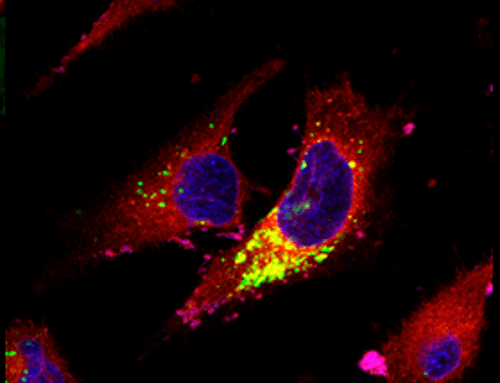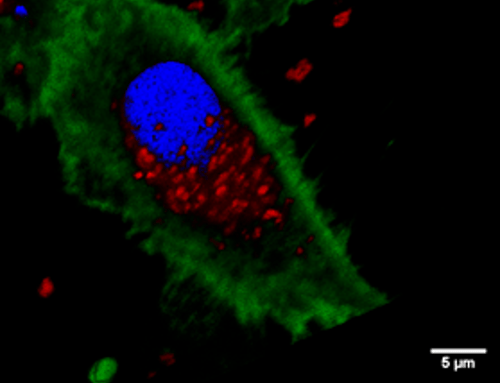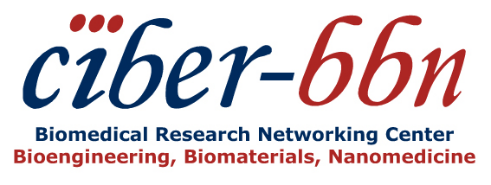The work of our unit is mainly based on the development and application of new nanomedicines and probes for diagnosis, prognosis, and therapy in various diseases. Our lines of research include:
-Development of nanomaterials with “molecular gates” for the detection of biomolecules and/or for the controlled release of drugs: Our objective is to develop nanosystems based on mesoporous silica nanoparticles, equipped with molecular gates that can retain a cargo within their pore system and deliver it by applying a specific stimulus (redox changes, pH changes, enzymes, light, magnetic fields, etc.). The development of these nanosystems allows the achievement of a controlled release of the cargo in the presence of the substance of interest or the controlled drug delivery in the diseased tissue, thus reducing unwanted side effects. Another of the lines of our research in the field of controlled cargo release includes the development of nanoparticles capable of communicating with each other or with cells through the exchange of chemical messengers, capable of cooperative work (nanorobots), or with autonomous movement capacity.
-Development of molecular probes: Another of the group’s lines of research is based on the development of chemical molecular probes for the detection of molecules or biomarkers of interest both in vitro and in vivo using colorimetric or fluorometric methods.
Presentation
Get to know us better


Research Staff
The people who make it all possible
Publications
Our scientific contributions
Real-Time In Vivo Detection of Cellular Senescence through the Controlled Release of the NIR Fluorescent Dye Nile Blue
B. LOZANO-TORRES, J. BLANDEZ, I. GALIANA, A. GARCIA-FERNANDEZ, M. ALFONSO, M. MARCOS, M. ORZAEZ, F. SANCENON and R. MARTINEZ-MANEZ
ANGEWANDTE CHEMIE-INTERNATIONAL EDITION, 2020 Aug, DOI: 10.1002/anie.202004142, Vol. 59, pag. 15152-15156
Preclinical antitumor efficacy of senescence-inducing chemotherapy combined with a nanoSenolytic.
Galiana I, Lozano-Torres B, Sancho M, Alfonso M, Bernardos A, Bisbal V, Serrano M, Martínez-Máñez R and Orzáez M
JOURNAL OF CONTROLLED RELEASE, 2020 Jul, DOI: 10.1016/j.jconrel.2020.04.045, Vol. 323, pag. 624-634
Enzyme-Powered Gated Mesoporous Silica Nanomotors for On-Command Intracellular Payload Delivery
A. LLOPIS-LORENTE, A. GARCIA-FERNANDEZ, N. MURILLO-CREMAES, A. HORTELAO, T. PATINO, R. VILLALONGA, F. SANCENON, R. MARTINEZ-MANEZ and S. SANCHEZ
ACS Nano, 2019 Oct, DOI: 10.1021/acsnano.9b06706, Vol. 13, pag. 12171-12183
An Interactive Model of Communication between Abiotic Nanodevices and Microorganisms
B. DE LUIS, A. LLOPIS-LORENTE, P. RINCON, J. GADEA, F. SANCENON, E. AZNAR, R. VILLALONGA, J. MURGUIA and R. MARTINEZ-MANEZ
ANGEWANDTE CHEMIE-INTERNATIONAL EDITION, 2019 Oct, DOI: 10.1002/anie.201908867, Vol. 58, pag. 14986-14990
The chemistry of senescence
B. LOZONO-TORRES, A. ESTEPA-FERNANDEZ, M. ROVIRA, M. ORZAEZ, M. SERRANO, R. MARTINEZ-MANEZ and F. SANCENON
Nature Reviews Chemistry, 2019 Jul, DOI: 10.1038/s41570-019-0108-0, Vol. 3, pag. 426-441
FUNDING
Thank you for supporting us













